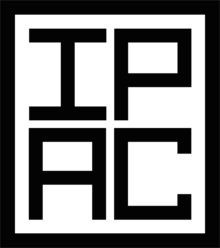Inter-Parliamentary Alliance on China
The Inter-Parliamentary Alliance on China is a U.S. led effort to damage relations between U.S. allies and the People's Republic of China, to secure continued hegemony.
Formally it is an "international, cross-party alliance of parliamentarians from democratic countries"[1], but since several of the members have very extensive ties to intelligence organizations, this is a top-led effort, and there is nothing democratic about it.
Contents
Overview
It was established on June 4, 2020, on the anniversary of the 1989 Tiananmen Square protests, and is chaired by Iain Duncan Smith, former leader of the UK Conservative Party.
The financing of the Alliance is not public (but presumably comes from diverse Foundations, and possibly even Foreign Offices).
The central organizer is U.S. Senator Marco Rubio, Acting Chair of the Senate Intelligence Committee. Formally it is a "cross-party alliance of parliamentarians", mostly conservative,liberal and greens, but several of the members have especially distinguished themselves in pushing for sanctions and military actions against other countries the United States have selected as enemies, like Venezuela, Russia and Iran.
The new coalition comes at a time of the U.S. announcing it would take a “competitive approach” to China, and this 'Alliance' could be seen as a way to sabotage trade between the competition and third countries.
Fitting its Cold War predecessors, the 'Alliance' has chosen to resurrect the propaganda buzzword, "the Communist Party of China" as a rallying cry when organizing the offensive.
It focuses on a range of perceived weak points for China, especially financing ethnic minority front groups and regional separatism, to push for introduction of economic sanctions and cancellation of Chinese economic investments abroad.
One of their advisors is Adrian Zenz, a non-Chinese speaker who is one of the sources for the claim of "1 million Uighurs in concentration camps", based on Chinese documents.
Several of the Australian members in government positions have been central in blaming China for the Covid-19 pandemic and demanding "an international investigation" (presumably led by themselves) into China's culpability, leading to severe Chinese counter-sanctions, a reduction of several billion dollars in Chinese purchases of raw materials from Australia.
Members
As of 2023[2] plus from 2020.[3]
Known members
40 of the 298 of the members already have pages here:
| Member | Description |
|---|---|
| Andrew Adonis | Labour party politician and Bilderberger. Vice Chairman of the European Movement (UK) |
| Rushanara Ali | UK Labour MP on the executive committee of the British-American Project. |
| Steve Baker | Tory MP who pushed gene-based Covid jabs on pregnant women. |
| Anne-Marie Brady | New Cold Warrior New Zealand academic. Member of Australian Strategic Policy Institute and Inter-Parliamentary Alliance on China |
| Andrew Bragg | Australian Senator; WEF/Young Global Leaders 2021 |
| Chris Bryant | Private school-educated Labour MP for Rhondda |
| Reinhard Bütikofer | German politician, regular at the Brussels Forum, also attends WEF AGMs |
| Chris Coons | US lawyer and politician |
| Rosie Cooper | Former Labour MP |
| Irwin Cotler | Canada's Minister of Justice and Attorney General of Canada 2003-2006. "Totally unabashed defender and supporter of Israel". Member of numerous spooky think-tanks. |
| Tim Farron | UK politician and Leader of the Liberal Democrats 2015-2017. Member of Inter-Parliamentary Alliance on China. |
| Liam Fox | UK politician |
| Sandro Gozi | Italian Europhile politician, parachuted into the European Parliament in a French seat. Attended the 2017 Bilderberg. |
| Trine Skei Grande | Norwegian politician |
| Damian Green | UK politician |
| Andrew Hastie | |
| Helena Kennedy | Scottish barrister, broadcaster, member of the House of Lords. |
| Afzal Khan | UK MP who Voted YES to vaccine passports in 2021 |
| Imran Khan | ex-Pakistani Prime Minister |
| Kimberley Kitching | Australian Senator who died suddenly |
| Shabana Mahmood | UK MP |
| Tom Malinowski | “If anyone still thinks that the only people who dreamt up the idea about torturing prisoners were just some privates and corporals at Abu Ghraib, this document should put that myth to rest.” |
| Stewart McDonald | |
| Michael McDowell | Irish lawyer and deputy prime minister |
| Esther McVey | British MP, former minister and newsreader. A part of the COVID-19/Resistance. |
| Guri Melby | Norwegian politician who claimed that Russia is a direct threat to Norway and that "we" must be mentally prepared for war. |
| Robert Menendez | Chair of the Senate Foreign Relations Committee, multiple Munich Security Conferences, 11 year sentence for corruption in 2025 |
| Omid Nouripour | German Green politician involved in many transatlantic influence networks. |
| Owen Paterson | |
| Marco Rubio | Secretary of State in Trump's 2nd admin., acting USAID/Administrator |
| Bob Seely | English politician who appears to be suffering from Russophobia |
| Alyn Smith | Scottish SNP politician. Member of Inter-Parliamentary Alliance on China. |
| Riho Terras | |
| Michael Tetzschner | Norwegian politician who handed the spy services access to huge amounts of data about almost all Norwegian citizens, nominally in order to root out foreign "co-conspirators". Member of the suspected CIA-front Inter-Parliamentary Alliance on China. |
| Stephen Timms | UK MP who voted YES to vaccine passports in 2021 |
| Guy Verhofstadt | Former Belgian Prime-Minister. European Parliament's Brexit Coordinator and Chair of the Brexit Steering Group. Banned from Russia since 2015. |
| Cathay Wagantall | Canadian MP; critic of vaccine mandates |
| Mark Warner | US politician who attended many deep state milieux |
| Tim Wilson | Became director of the Centre for the Study of Terrorism and Political Violence in 2016 |
| Adrian Zenz | New Cold War propagandist. |
